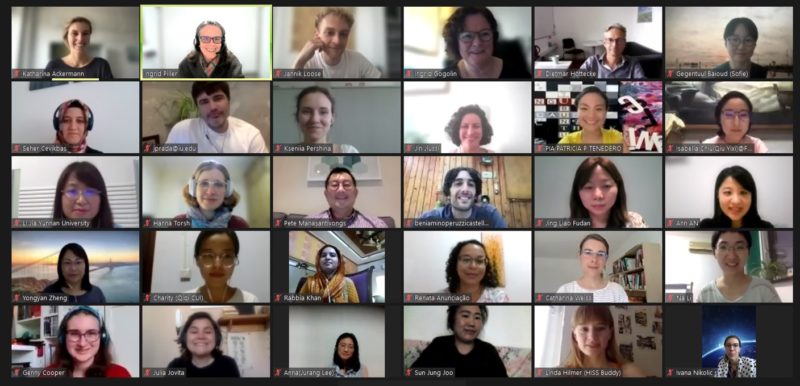
21 Masters and PhD students from 9 countries attended the Hamburg International Summer School 2021 devoted to “Language Diversity, Education, and Social Participation”
How do train stations across Europe deal with the linguistic diversity of travelers? How does Kazakhstan educate the 140 linguistic minority group within its borders? What are China’s foreign language learning policies?
These are just a few of the questions addressed during the Hamburg International Summer School 2021 devoted to “Language Diversity, Education, and Social Participation”.
In cooperation with Macquarie University in Sydney and Fudan University in Shanghai, Universität Hamburg organized the Hamburg International Summer School (HISS) 2021 “Language Diversity, Education, and Social Participation” in July this year.
The summer school “Language Diversity, Education, and Social Participation” provided a unique opportunity to engage with the topic of language diversity and its social consequences. University teachers from Sydney, Shanghai, Indianapolis, Brussels, Strasbourg, and Hamburg worked with 21 students from 9 countries. Each multilingual student spoke at least 4 languages and some as many as 9.
Key topics related to societal and individual multilingualism, language development and language education in multilingual contexts, linguistic diversity in formal and informal institutional contexts, and language learning motivation in East Asia.
Unfortunately, the global Covid-19 pandemic made it impossible for us to meet in person. Therefore, the summer school ran in a virtual format and included online lectures, synchronous online classes, and regular informal meetings.
Trying to register for COVID-19 vaccination in Australia, Germany, or Serbia with limited or no proficiency in the national language?
At the same time, the COVID-19 pandemic also provided the context in which to explore questions of education and social participation in linguistically diverse societies. All participants undertook group research projects devoted to the language challenges of the pandemic. Drawing on resources available in the Language on the Move COVID-19 archives, they produced videos about their findings, as in this example. Here, participants Catharina Weiss, Sun Jung Joo, and Ivana Nikolic examined official vaccination registration websites in Australia, Germany, and Serbia to see how accessible they are to residents with limited or no proficiency in English, German, or Serbian.
Their findings in a nutshell: without English, German, or Serbian, you might not be able to register for vaccination in these countries. View their full report here:
The Hamburg International Summer School 2021 devoted to “Language Diversity, Education, and Social Participation” was part of the Next Generation Network “Social participation across generations in linguistically diverse societies – risks and chances in times of crises”.

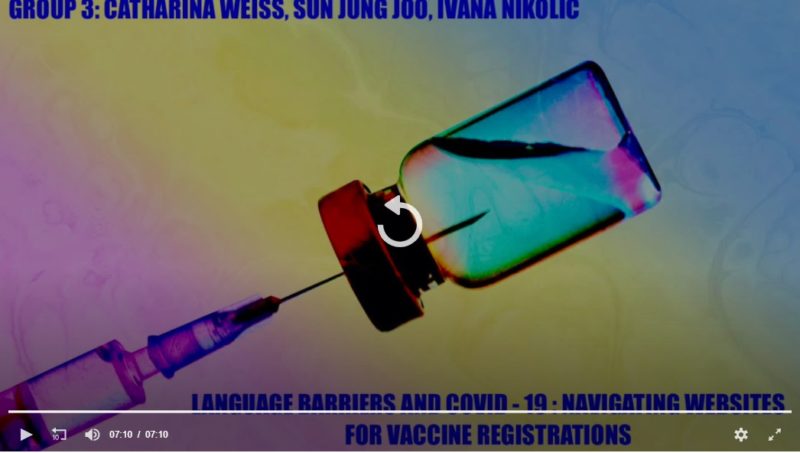
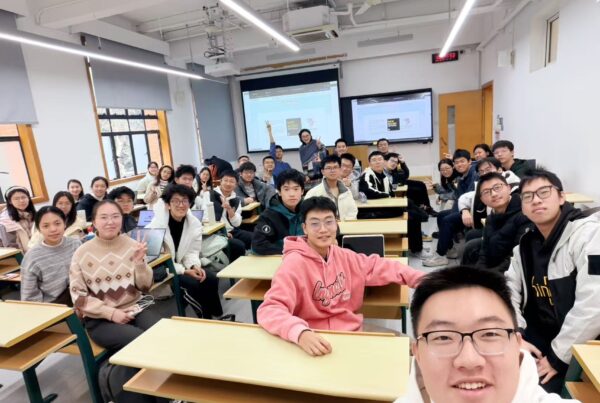
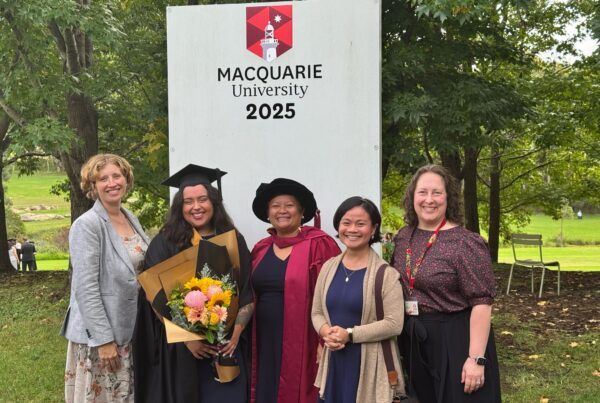
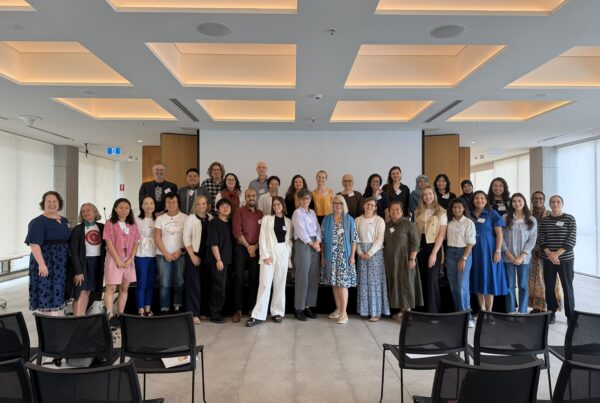


 This work is licensed under a
This work is licensed under a
When talking about vaccination rollouts in multicultural societies, the proficiency of the population should be one of the biggest concerns. As the case of Australia, there are many groups of minorities. Thus to ensure that the vaccination process can run smoothly, linguistic diversity should be addressed in the government plan. When the minority received adequate information they will be able to participate in the vaccination process responsibly.